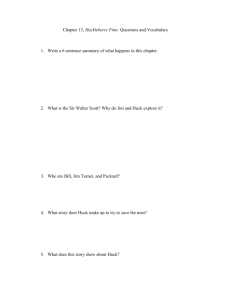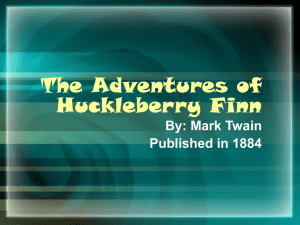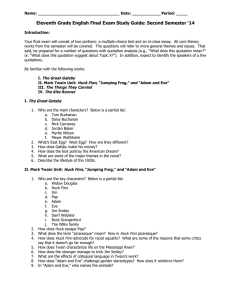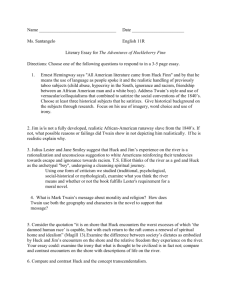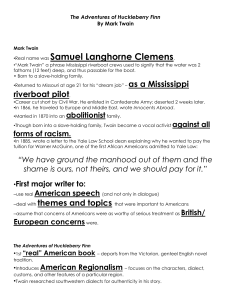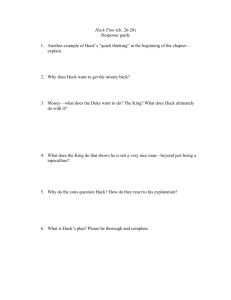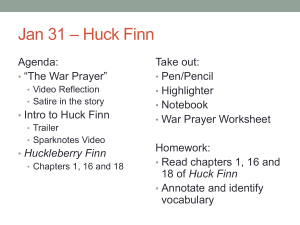Adventures of Huckleberry Finn
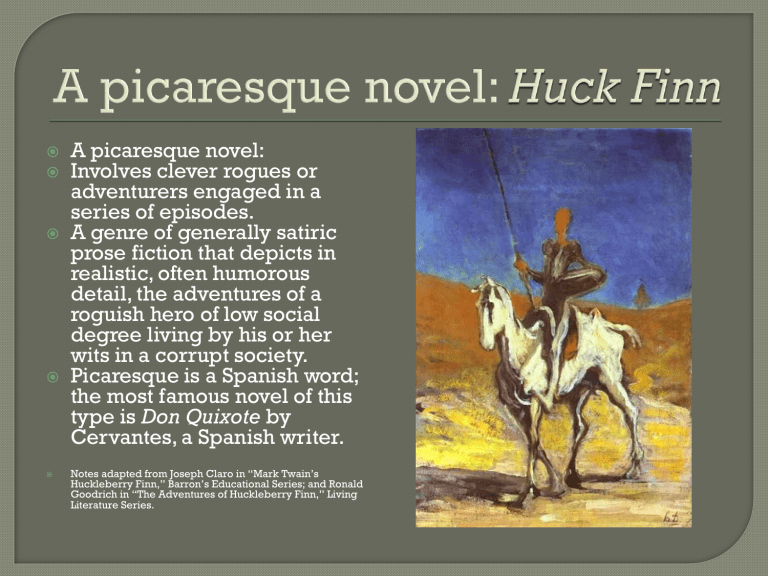
A picaresque novel:
Involves clever rogues or adventurers engaged in a series of episodes.
A genre of generally satiric prose fiction that depicts in realistic, often humorous detail, the adventures of a roguish hero of low social degree living by his or her wits in a corrupt society.
Picaresque is a Spanish word; the most famous novel of this type is Don Quixote by
Cervantes, a Spanish writer.
Notes adapted from Joseph Claro in “Mark Twain’s
Huckleberry Finn,” Barron’s Educational Series; and Ronald
Goodrich in “The Adventures of Huckleberry Finn,” Living
Literature Series.
These are similar to an action-adventure
TV series in which a main character survives by his wits, usually engaging in violence and often breaking the law to get things done.
This character is admirable because of bravery, quick thinking, or strength.
Yet, they are not characters parents want their children to emulate, which is one of the criticisms of
Huck Finn.
Twain “broke the mold” by making
Huck the narrator; telling the story in
Huck’s language and point of view; and perhaps most picaresque, making
Huck likeable as our hero.
Huck possesses many of the qualities of a picaresque hero.
He is an outcast from society.
He sees himself as a sinner by society’s code for helping Jim escape.
He shows the reader the false values of Southern
United States society while keeping the readers’ sympathy on his side.
In the mistaken belief that the superficial societal conventions of his day are synonymous with the values of civilization,
Huck never realizes that his basic integrity and his compassion reveal him as a truly civilized human being.
Again, Twain does this by “talking over”
Huck’s head to the reader: We understand things that Huck does not, which lets us know how Twain wants us to feel.

